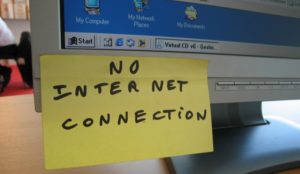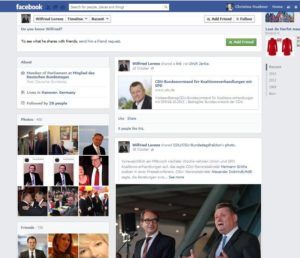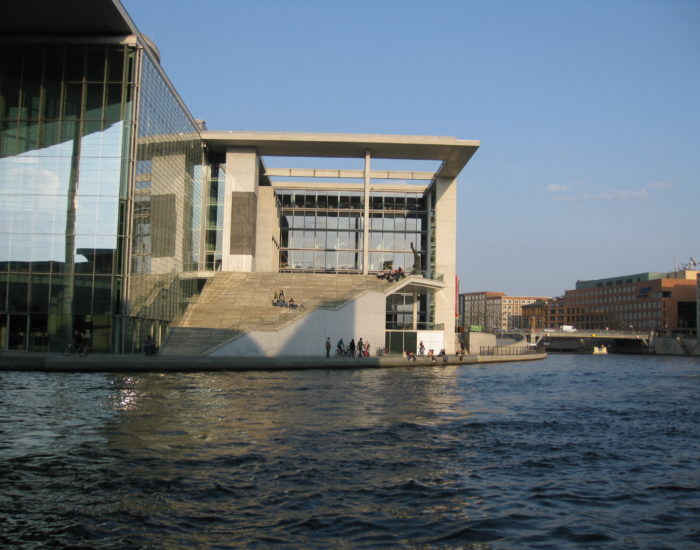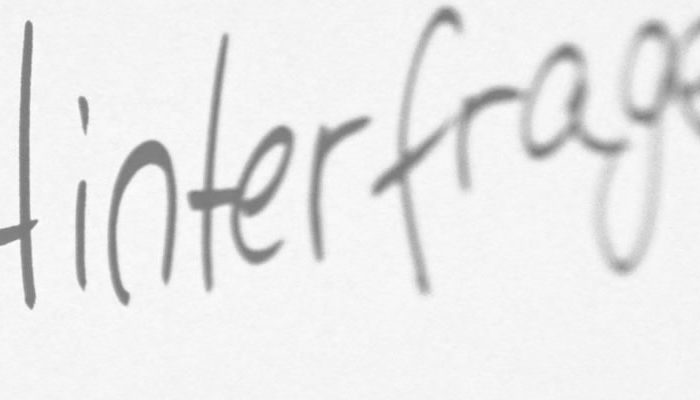The Puzzle of German Online Campaigning: A Brainteaser
By Christine Hübner.

In the past couple of weeks I have been spending a whole lot of time online. Actually I think I’ve spent more time online than usual – if that’s even possible for a member of the online generation. We’ve been monitoring the political campaigns around the German parliamentary elections held in late September. Half out of scientific curiosity and half because we figured we would be following closely anyways, we wanted to keep an eye out on how the candidates running for the six hundred something mandates in Germany’s national parliament would make use of the Internet in their campaigns.
We were particularly curious because there had been quite some advances earlier this year that let us believe the parties had a real plan on how to use the Internet in their campaigns:
- Chancellor Merkel ordered all her MPs to follow mandatory social media trainings, and had given citizens the chance to chat with her during a first live session via Google Hangout.
- The Social Democrats sent their own researchers to the US to learn from Barack Obama & Co. how they led such successful online campaigns in the past. And they hired a media agency only for their online campaign.
- The Greens scheduled to spend 80% of their campaign budget on online media, roughly 4.4 million Euros.
- For the first time the omni-web-present Pirate party would send their own candidates into the race. They could reasonably be expected to spend the entire budget of around 1 million Euros online – as if they would know what else to do with it.
- And in addition to all this, there had been (semi-)party-affiliated media agencies and think tanks mushrooming in Berlin during the past legislative period: witty names such as CNetz, D64 and Digiges thought out by people who embarked in boosting their party’s online competence to a whole new level.
Despite all this driving our hope, after 4 weeks of monitoring we find horrendous deficits when it comes to online campaigning of individual MP candidates. Deficits that really leave me puzzled about what it was exactly that the parties set out to do online in this campaign.
We particular started our research by exploring the online sphere from the perspective of a citizen who needs to not only make a choice for a party overall, but also choose a direct mandate candidate to represent her region specifically. Assuming we would look for information on the candidates in various regions we examined their Google hits, web and social media presence. While the candidates of Christian and Social Democrats often boasted slick websites with little content, candidates of the smaller parties were sometimes even nowhere to be found online. We were startled when we realised that half of the candidates in our sample who had a Facebook profile (yay!) had disabled the comment function to not let people leave them a message (nay!).
 Facebook page without comments
Facebook page without comments
I am most startled by the use of video footage online: a meagre 20% of the 152 candidates monitored in our sample used some form of video message to address citizens online. Maybe one or two had a proper set of videos geared towards recent events or as answers questions from citizens. Dear candidates, any 16-year-old can do better than this! Look at Youtube and the number of clicks some of these kids with their bubbly monologues and shaky camera perspective get and you might be able to figure out why the number of non-voters was highest in the group of 18–25 year olds. These smartphone-tied kids do not think about your TV ads or discuss your oversized billboards – because they simply do not see them. They do not watch TV and do not look out on the street while riding the bus.
 Any 16-year old Youtuber can do better
Any 16-year old Youtuber can do better
In total the parties have spent about 70 million Euros in this year’s campaign, of which SPD and CDU have had the lion’s share of around 20 million each. Enough to spend some of it on a proper website template for their candidates, you would think. But money was first and foremost spent on traditional campaigning utensils: TV ads, roadside billboards, giveaway flyers, and – you wouldn’t believe they still do this – in-house mailings. While in absolute terms people still watch a lot of TV in Germany – more than 3.5 hours per day – the daily hours of TV consumption have for the first time in ages decreased in 2012, particularly driven by the younger age groups who watch less and less TV and migrate to other media instead. Based on these (publicly available) figures and the easy equation “younger age groups = future voters” any reasonable media consultant should have advised to spread efforts over online and offline media. Especially at the base with thousands of MP candidates the advantages of targeted online communication should be all the much bigger than of the general national TV spot.
Now, I have been racking my brain for a while already about this:
- I know from experience how difficult and nerve-wrecking it can be to build a good web presence and it is certainly not something you get right overnight.
- It takes a lot of time and effort to be online.
- I have also seen what can happen with politicians who put themselves out there in the online public space and get run over by shit storms, so I understand that there may be some reservations to the trial-and-error-technique.
But given that the word of the rise of the Internet has been out there for a while, I would have expected more candidates to be able to handle these challenges. There have been few individual candidates in our sample who are doing a wonderful job with their online presence. What strikes me, however, is the structural deficit that we see across all parties: despite their efforts announced in advance there is no party whose candidates can be largely exempted from this criticism or show that they are on the right path at least. I cannot get rid of the feeling that someone either did not do their homework here or was purposefully ignoring his or her common sense regarding the communication trends of the 21st century. Obviously, my logic has to be flawed somewhere, because I am thinking that there need to be people in the whole magic circle of politics and advisory who should have known better how to set up a proper online campaign for their MP candidates (or simply be able to use Youtube for that matter). Can it be so difficult or the fear of failure so big as not to try?
If anyone of you is reading this, dear members of the campaign teams, of CNetz, D64 or Digiges, please let us know what the online plan for your parties is – because WE COULDN’T SEE ANY OF IT! Please, anyone of the strategy circles of the big parties, helps us out and tell us what the next online-steps for your parties and politicians will be. Otherwise, this will keep bugging my mind for long. Thank you!
PS: You can read the report on findings and recommendations (in German) HERE.
–
Christine Hübner is a partner at d|part.
Disclaimer
The views and opinions expressed in this article are those of the author.
–
Picture: No Internet Connection by Ben Dalton (own work) via Flickr, released under Creative Commons.



